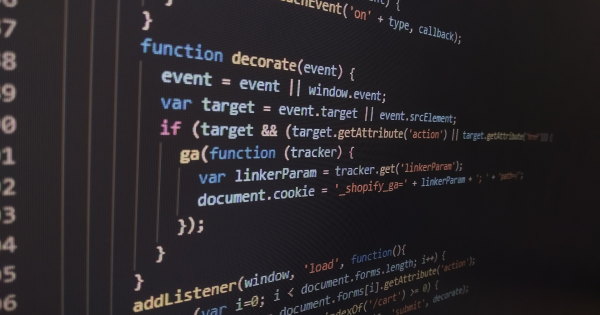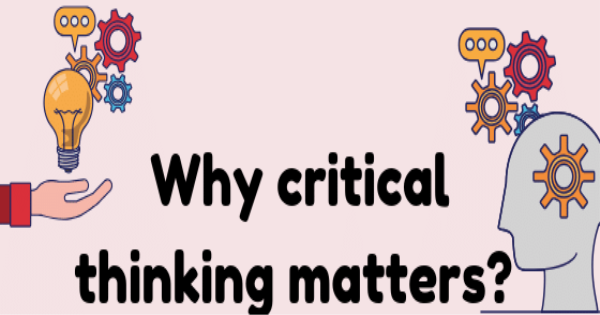Dreams and aspirations shape our lives, but achieving them requires more than just wishful thinking. One of the most powerful tools for success is accountability. Whether through self-discipline, mentorship, or support groups, holding yourself responsible for progress can significantly enhance your ability to turn dreams into reality.

What is Accountability?
Accountability refers to taking responsibility for your actions, progress, and commitments. It involves being answerable to yourself or others for the steps you take toward your goals.
Types of Accountability
| Type | Description |
|---|---|
| Self-Accountability | Taking personal responsibility for actions and goals. |
| Peer Accountability | Being answerable to friends, mentors, or colleagues. |
| Professional Accountability | Hiring a coach or mentor to guide you. |
Why Accountability Matters in Achieving Dreams
Without accountability, motivation can wane, distractions take over, and procrastination becomes an obstacle. Here’s why accountability is essential:
1. Enhances Focus and Commitment
-
Keeps you dedicated to your goal
-
Prevents distractions and deviations
-
Strengthens determination to stay on track
-
Helps build a structured plan for progress
2. Encourages Consistent Progress
-
Regular check-ins push you to take action
-
Reduces procrastination and increases productivity
-
Creates a habit of discipline and responsibility
-
Helps you measure small wins along the way
3. Provides Motivation and Support
-
Encouragement from peers or mentors keeps you going
-
Constructive criticism helps refine strategies
-
Boosts self-confidence through shared experiences
-
Increases resilience when facing obstacles
4. Helps Overcome Challenges
-
Provides a problem-solving approach
-
Strengthens resilience during setbacks
-
Offers alternative strategies when progress slows
-
Ensures you don’t give up during difficult times
5. Builds Stronger Habits
-
Establishes a routine that supports growth
-
Reinforces positive behaviors that drive success
-
Eliminates negative habits that hinder progress
-
Encourages long-term dedication to goals
How to Implement Accountability in Your Life
1. Set Clear and Achievable Goals
-
Define specific, measurable, achievable, relevant, and time-bound (SMART) goals.
-
Break big dreams into smaller, manageable tasks.
-
Develop an action plan to track each step.
-
Identify milestones and reward progress.
2. Find an Accountability Partner
-
Choose a friend, mentor, or coach to track your progress.
-
Regularly update them on your progress.
-
Ensure mutual commitment to staying accountable.
-
Schedule frequent check-ins and evaluations.
3. Use Technology for Accountability
-
Utilize apps like Trello, Habitica, or Asana for goal tracking.
-
Set reminders and schedule periodic reviews.
-
Leverage productivity tools to stay organized.
-
Automate goal-tracking to ensure consistency.
4. Join an Accountability Group
-
Engage in mastermind groups or online communities.
-
Share your progress and receive feedback.
-
Learn from others who have similar goals.
-
Gain access to new perspectives and strategies.
5. Maintain a Progress Journal
-
Document achievements, setbacks, and strategies.
-
Reflect on progress weekly to stay on track.
-
Use a journal to analyze patterns and adjust plans.
-
Incorporate visualization techniques to reinforce success.
The Psychological Benefits of Accountability
Accountability is not just about achieving goals—it also has significant psychological benefits:
-
Reduces stress and anxiety – Having a clear plan minimizes uncertainty.
-
Boosts self-discipline – Regular accountability strengthens willpower.
-
Enhances time management skills – Keeps you efficient and productive.
-
Improves self-awareness – Encourages reflection and continuous improvement.
-
Fosters a growth mindset – Helps you embrace challenges as opportunities.
Common Challenges in Staying Accountable and Solutions
| Challenge | Solution |
| Lack of motivation | Find an inspiring mentor or group. |
| Procrastination | Set deadlines and use time management tools. |
| Fear of failure | Focus on learning from setbacks. |
| No support system | Join online forums or local networking groups. |
| Overwhelming goals | Break them into smaller, actionable steps. |
| Inconsistent effort | Develop a routine and stick to it. |
Real-Life Examples of Accountability in Action
1. Entrepreneurs and Business Owners
Successful entrepreneurs use accountability to build thriving businesses. Many have mentors or accountability partners who help them stay focused on growth and overcoming challenges.
2. Students and Academic Success
Students who set clear study goals and check in with tutors or peers tend to perform better in academics. Regular accountability ensures they meet deadlines and improve learning habits.
3. Fitness and Health Goals
People who work with personal trainers or join fitness groups are more likely to stick to their health routines than those who go solo.
4. Personal Development Journeys
Individuals working on self-improvement—such as learning a new skill or overcoming a habit—find that accountability partners keep them consistent in their efforts.
Related Articles
-
 Ilmkidunya 05/Aug/2025
Ilmkidunya 05/Aug/2025How to Choose the Right Career Path as a Student
-
 Ilmkidunya 01/Aug/2025
Ilmkidunya 01/Aug/2025Trusted Education Consultants in Pakistan – Students Club
-
 Ilmkidunya 01/Aug/2025
Ilmkidunya 01/Aug/2025How Entry Test Patterns Are Changing in 2025
-
 Ilmkidunya 01/Aug/2025
Ilmkidunya 01/Aug/2025How to Prepare for University Admissions in 2025
-
 Ilmkidunya 27/Jul/2025
Ilmkidunya 27/Jul/2025Study vs. Skill: What Really Gets You Hired in 2025
-
 Ilmkidunya 27/Jul/2025
Ilmkidunya 27/Jul/2025Top 5 Career Options After FSC (Pre-Medical) in 2025
-
 Ilmkidunya 17/Jul/2025
Ilmkidunya 17/Jul/20255 Jobs for Computer Science & IT Students That Do Not Need Programming
-
 ilmkidunya 11/Jul/2025
ilmkidunya 11/Jul/2025Understanding Aptitude and Its Role in Career Planning
-
 Ilmkidunya 08/Jul/2025
Ilmkidunya 08/Jul/2025Top 10 Universities in Lahore – 2025 Guide
-
 Ilmkidunya 01/Jul/2025
Ilmkidunya 01/Jul/2025The Future of Artificial Intelligence in the Job Market
-
 Ilmkidunya 30/Jun/2025
Ilmkidunya 30/Jun/2025How to Set and Achieve SMART Goals
-
 Ilmkidunya 23/Jun/2025
Ilmkidunya 23/Jun/2025Top 10 Engineering Degrees With The Highest Demand in 2025
-
 Ilmkidunya 13/Jun/2025
Ilmkidunya 13/Jun/2025How Internships Help Shape Career Goals
-
 Ilmkidunya 13/Jun/2025
Ilmkidunya 13/Jun/2025Why Critical Thinking Matters Today More Than Ever
-
 ilmkidunya 21/May/2025
ilmkidunya 21/May/2025Top Tips for Building a Strong Academic CV in 2025 – Even with No Experience
-
 Ilmkidunya 14/May/2025
Ilmkidunya 14/May/2025How Languages Shape the Way We Think
-
 Ilmkidunya 13/May/2025
Ilmkidunya 13/May/2025From Idea to Invention: How Students Can Be Innovators
-
 Ilmkidunya 12/May/2025
Ilmkidunya 12/May/2025How to Learn Anything Faster: Techniques Backed by Science
-
 Ilmkidunya 06/May/2025
Ilmkidunya 06/May/2025Top Programming Languages to Learn in 2025
-
 ilmkidunya 28/Apr/2025
ilmkidunya 28/Apr/2025Best Short Courses Students Can Take After Matric and Intermediate

.gif)









.png)


Share Your Comments Questions Here